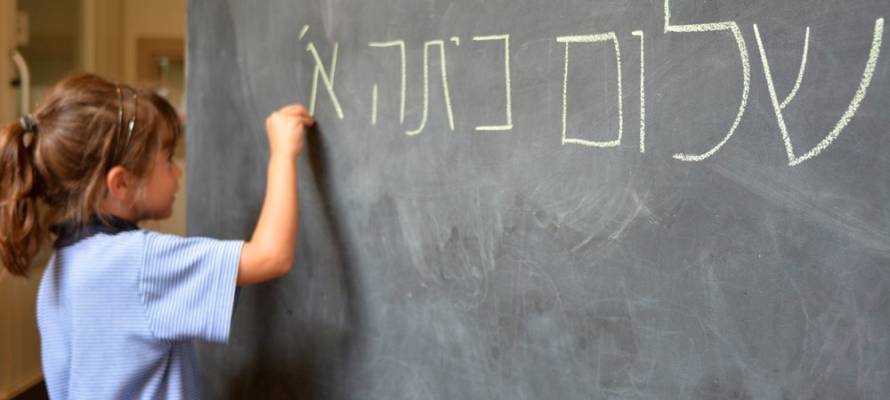“One of the main marketing points that Hebrew charter schools make to non-Jewish families is that it’s good for brain development and creates opportunities in the future,” Rabbi Andrew Ergas said.
The Hebrew language, once considered obsolete, has not only received a full revival in Israel but has also become popular as a language to study in American public and charter schools.
According to a report recently issued by the Consortium for Applied Studies in Jewish Education (CASJE) and George Washington University’s Graduate School of Education and Human Development, more than 6,600 students studied Hebrew in US schools in 2018.
The report, called “Mapping Hebrew Education in Public Schools: A Resource for Hebrew Educators,” found 35 schools offering Hebrew-language classes,17 of which serve students in either elementary or middle school. This demonstrates that learning a second language is no longer considered just a high school requirement. Additionally, 19 of the schools reported increased enrollment in Hebrew classes over the past 5-10 years.
“I think the biggest surprise is that there are 2,000 students in traditional public schools studying Hebrew language,” said Sharon Avni, who co-wrote the report with Avital Karpman, according to JNS.
“Every individual community we spoke to had different reasons and different communities of students,” Karpman added. “There isn’t a thread running through all these Hebrew programs.”
Hebrew language programs are also being offered at inner-city schools, such as in New York and Washington, D.C. Other popular locations include Florida, New Jersey, California and Chicago.
Hebrew-language study has become popular to the extent that 400 people attended the seventh annual “Hebrew in North America Conference,” in Newark, New Jersey in November, sponsored by the World Zionist Organization’s Department of Education and the Council for Hebrew Language and Culture in North America, JNS reported.
Academic research suggests that learning a second language is beneficial to children’s cognitive growth. It also can help build empathy towards others, as language connects to the culture and values of native speakers.
“I think this is one of the main marketing points that Hebrew charter schools make to non-Jewish families – that it’s good for your children to learn another language, that it’s good for the brain development, and it creates opportunities in the future,” Rabbi Andrew Ergas, chair of the Council for Hebrew Language and Culture in North America, told JNS.
The rabbi also suggested that Jewish people who attend public school connect to their heritage and culture through studying Hebrew. “It’s not religious, not political,” Ergas noted. “Instead of Spanish, you are taking Hebrew.”
Recognizing the divisiveness in America today, Avni said, “People think we are less inclusive, but multilingual and bilingual are seen as a great thing … and families are interested in having their children learn more languages.”
Dan Tatar, director of communications and outreach at iCenter for Israel Education in Northbrook, Ill., said learning Hebrew connects people to the reality of Israel. “It became real,” he told JNS. “It’s a language people are using and it connected me to something deeper. We see that with students today.”










